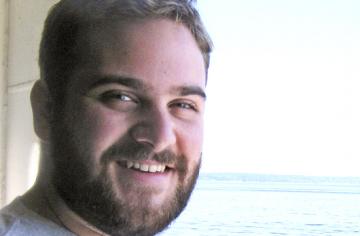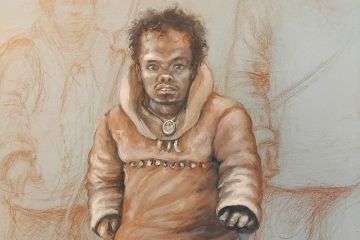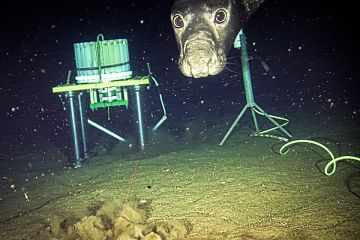Using videogames to help kids with ADHD and FASD
- Jory MacKay

If there’s anyone out there who still believes the old adage that playing videogames will rot your brain, they should talk to recent master’s in computer science graduate David Bartle. Along with faculty members Drs. Bruce Gooch (computer science) and Kim Kerns (psychology), Bartle developed two suites of serious games meant to help with therapeutic interventions for children with such disorders as Attention Deficit Hyperactivity Disorder (ADHD) and Fetal Alcohol Spectrum Disorder (FASD).
Originally from Saltspring Island, Bartle came to UVic in 2004 and began working towards an undergraduate degree in physics before eventually switching to computer science and math. Yet it was through his final co-op work term that he found inspiration to continue on to grad school.
“When I joined my last co-op term, I worked for Dr. Bruce Gooch, who would be my graduate supervisor, and Dr. Kim Kerns in the Department of Psychology,” says Bartle. “Dr. Kerns has done years of work researching kids with ADHD and FASD, and basically she proposed using video games as rehabilitative therapies to try to help kids,” says Bartle.
During the summer of 2009, Bartle helped create the first game, Cognitive Carnival. For his master’s thesis, he worked with a group of three undergraduate students to create a follow-up entitled Caribbean Quest, a web-based suite of serious games that is targeted towards children aged six to 13.
“We had to accommodate a pretty wide range of kids both in the appropriateness of the games and in the difficulty of the content,” says Bartle. “One of the areas that videogames helped address was providing something that would help target the whole range of people.”
The psychological research behind the games focuses on enhancing cognitive abilities such as sustained attention and working memory, the ability to not just recall things, but to actually hold them in memory and manipulate them. So far the response has been universally positive.
“The data that have come back so far have shown small but statistically significant improvements,” says Bartle. “The number-one focus is just getting the kids engaged. It’s hard work and it’s not just playing, they have to really focus.”
The work done by Bartle and his team garnered him one of the 2011 Google Lime scholarships—the only one awarded to a student at a Canadian university. The scholarship recognizes students with disabilities who have not only shown achievement in computer science, but have also demonstrated passion and leadership within their studies.
“If you look at the list of winners, and I don’t want to boast or anything, but the list of universities is pretty impressive,” says Bartle. “It’s kind of funny to see a little school like UVic on there, and I thought that was pretty cool.”
Since graduating, Bartle has accepted an offer from Amazon.com and plans to move to Seattle to work for them at their headquarters as a software engineer.
Photos
In this story
Keywords: research, computer, computer science
People: David Bartle, Bruce Gooch, Kim Kerns





